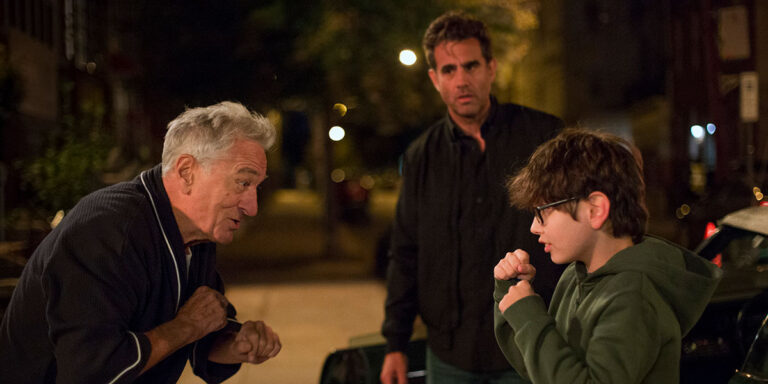
Society has evolved over the years in its treatment of those with special needs, shifting from a focus on correcting or stifling any perceived deficiencies to providing tailored care to meet them where they are. Yet, even when presented with the most attentive and well-meaning environments, there are those who believe that treating anyone differently can still be detrimental.
Tony Goldwyn’s latest film Ezra engages with that debate with a heartfelt if clunky look at one father’s struggle to properly express his fervent love for his son.
Eleven-year-old Ezra (William A. Fitzgerald) is autistic and prone to certain behaviors that his parents, Max (Bobby Cannavale) and Jenna (Rose Byrne), have mostly come to understand. But being separated and having their own careers to focus on means that they’re not always sure exactly what will be best for their son.
When an incident occurs that threatens to keep Max from seeing Ezra as he is treated with anti-psychotic medication, Max decides to do everything in his power to be the father he needs to be for his son while still wrestling with the complicated relationship he has with his own father (Robert De Niro).
Following a screening of the film at the Toronto International Film Festival, Goldwyn stressed the personal touch of screenwriter Tony Spiridakis, who himself has a son on the autism spectrum.
While his experiences are certainly lived-in and this film makes the productive and highly worthwhile choice to cast a child actor who is actually autistic, the overarching story doesn’t feel quite as natural. The dialogue uttered by the adult actors feels forced and unconvincing, and while the idea and message of the film remain poignant, the framing isn’t as effective. Considering the talent in front of the camera, it’s disappointing that the end result doesn’t take full advantage of their abilities.
What Ezra does get right is that delicate balance between purposeful tailored treatment and a desire to see everyone as equal. Max has little patience for anyone who thinks they know better than him, and also believes that Ezra needs to be toughened up by interacting with a traditional neurotypical classroom instead of a specialized school. But he yearns desperately for Ezra to curb many of the behaviors that define him and to chart some sense of progress towards a perceived idea of normalcy. Max does slowly begin to realize, as audiences should suspect from the start, that what he hopes for from Ezra is about what he wants for himself as a father to a son rather than what might actually be the most significant sign of his stability for his son on his own.
Another facet of the story that adds to its character analysis is Max’s profession as a stand-up comedian. He goes to the mic to vent about his life, extracting comedy from moments that really aren’t funny, and it’s often hard to tell whether he thinks he’s still telling a joke or has just run out of steam to try to entertain an audience. Most of the time, it feels like he’s given up on doing anything but laughing about his perceived misfortunes, aware that he doesn’t have control of any situation, whether it involves his son, his ex-wife, or his father. That his agent wants him to dial up the effort to land a big gig emphasizes what so often happens in life: the best opportunities come at the absolute worse times.
What begins as a somewhat lighthearted look at two parents who are really struggling to be okay with who they are and who their son is evolves into a caper comedy of sorts, taking a number of questionable turns along the way as it arrives at some form of acceptance for each of its characters. Casting real-life partners Cannavale and Byrne in these roles works well because they’re able to exude chemistry masked in frustration, and De Niro taps into a deep sense of regret to portray a father watching his son make entirely different mistakes than the ones he did. The standout is, of course, Fitzgerald, who ensures that a film about parents with an autistic son never lets them entirely overshadow his endearing presence.
Grade: B-
Check out more of Abe Friedtanzer’s articles.
Ezra makes its world premiere in the Special Presentations section at the 2023 Toronto International Film Festival.

